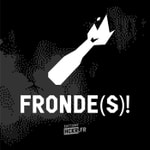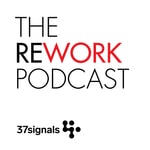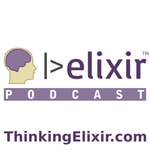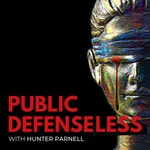FOSS and Crafts – Details, episodes & analysis
Podcast details
Technical and general information from the podcast's RSS feed.
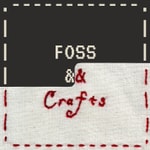
FOSS and Crafts
FOSS and Crafts
Frequency: 1 episode/21d. Total Eps: 63

Recent rankings
Latest chart positions across Apple Podcasts and Spotify rankings.
Apple Podcasts
🇺🇸 USA - crafts
14/06/2025#92🇺🇸 USA - crafts
13/06/2025#85🇺🇸 USA - crafts
12/06/2025#68🇺🇸 USA - crafts
11/06/2025#50🇺🇸 USA - crafts
10/06/2025#41🇺🇸 USA - crafts
15/05/2025#98🇺🇸 USA - crafts
14/05/2025#89🇺🇸 USA - crafts
13/05/2025#79🇺🇸 USA - crafts
12/05/2025#74🇺🇸 USA - crafts
11/05/2025#51
Spotify
No recent rankings available
Shared links between episodes and podcasts
Links found in episode descriptions and other podcasts that share them.
See all- https://freesound.org/
5002 shares
- https://dnd.wizards.com/
151 shares
- https://sdgs.un.org/goals
149 shares
RSS feed quality and score
Technical evaluation of the podcast's RSS feed quality and structure.
See allScore global : 53%
Publication history
Monthly episode publishing history over the past years.
62: Blender
dimanche 3 mars 2024 • Duration
Blender, the absolute powerhouse of FOSS 3d (and increasingly 2d) graphics! We give an overview of the software's history, some personal history of our relationships to the software, what it can do, and where we're excited to see it go!
Links:
Some historical Blender videos from the NeoGeo and Not a Number days: Did It, Done It, Not a Number commercial, Come and See
Elephants Dream, aka Project Orange
Previous episodes on blender:
Blender Conference videos mentioned:
The MediaGoblin campaign video (well, the second one)
Seams to Sewing Pattern (a Blender plugin for making clothes and stuffed animals!) (could we make Free Soft Wear patterns with it?)
Episodes about lisp, because obviously Blender needs more lisp (who's going to do it):
61: A Textile Historian's Survival Guide
dimanche 10 décembre 2023 • Duration
How do you survive in a world that is no longer optimized for making your own clothing when you suddenly find that modern conveniences no longer accommodate you? As a textile historian, Morgan has been ruminating for years about women’s contributions to the domestic economy, the massive time investment of producing clothing for a family, and the comparative properties of different textile fibers. These research interests were informed by a lifetime of sewing and other fiber crafts. None of this experience, however, properly prepared her to face the reality of needing to rely on her own hands to provide large portions of her own wardrobe.
Guest co-host Juliana Sims sits down with Morgan to talk about how, in the wake of a recently developed allergy to synthetic fabrics, she now finds herself putting that knowledge of historical textile production to use to produce clothing that she can wear.
Links and other notes:
- Morgan presented this as a (much shorter) talk at the Dress Conference 2023
- Slides from the presentation
- Morgan's Dissertation, which we also covered
- RSI Glove Pattern
The quote that Morgan somewhat misremembered about a woman preparing wool before the winter:
"A thrifty countrywoman had a small croft, she and her sturdy spouse. He tilled his own land, whether the work called for the plough, or the curved sickle, or the hoe. She would now sweep the cottage, supported on props; now she would set the eggs to be hatched under the plumage of the brooding hen; or she gathered green mallows or white mushrooms, or warmed the low hearth with welcome fire. And yet she diligently employed her hands at the loom, and armed herself against the threats of winter." -- Ovid, Fasti 4.687-714
52: Terminal Phase: a space shooter that runs in your terminal!
dimanche 13 novembre 2022 • Duration
Terminal Phase! A space shooter that runs in your terminal!!! Who wouldn't be excited about that?
Not to mention that it shows off cool features of Spritely Goblins... like time travel:
Well, Terminal Phase has been Christine's fun/downtime project for the last few years, and one of the bonuses you can get for the reward tiers of donating to this podcast! And yet we've never done an episode about it! Given that a brand new (and much easier to install) release of Terminal Phase is coming out really soon, we figured now's a good time to talk about it!
Links:
- Terminal Phase!
Blogposts about Terminal Phase!
- FOSS & Crafts' Patreon
- Spritely Goblins, a project of the Spritely Institute
- Blast off! A tour of Spritely Institute's tech
- Racket
- Guile
- Guix
- 8sync (Goblins predecessor). See also the Mudsync video, on that very page.
- Raart
- Spacewar!
- A bit about how Spacewar lead to UNICS (later renamed Unix)
51: #vanlife...?
samedi 1 octobre 2022 • Duration
Morgan and Christine walk through their (well, Morgan's) renovation of a cargo van into a campervan. This is a very crafty episode, but we do work in a few analogies to some FOSS (and open hardware) things!
Show notes at the end, but how about a quick visual van tour?
Back of the van, wide open!
A closer look...
Actually, let's move that solar panel aside...
Here's a better view of the cabinet with all the equipment attached:
Here's what the van looks like if you come in the side door:
Another, more diagonal view:
Safety first!
Window covers, custom fit! Reflectix goes out, fabric goes in.
The cabinet with the cargo net off...
And one more view!
Links:
50: The Spritely Institute
dimanche 21 août 2022 • Duration
The Spritely Institute (of which Christine is CTO) just announced its multi-year grant by the Filecoin Foundation for the Decentralized Web and gave a tour of its current tech! This is a big moment that's been in the works for a while, as Spritely moves hands towards real stewardship by a real nonprofit!
Also also! The video recording of the Lisp/Scheme workshop (based on A Scheme Primer) is released! Unlock Lisp / Scheme's magic: beginner to Scheme-written-in-Scheme in one hour! (PeerTube, YouTube, )
Links:
FOSS & Crafts episodes about Spritely:
The What is Spritely episode, where Morgan says "get in the car Christine you need to talk about your project", is the first time Christine laid out the broader (early) plans for Spritely in depth! (In that sense, FOSS & Crafts has been here for much of Spritely's journey, as many of our listeners know!)
Less directly, Mark S. Miller on Distributed Objects, Part 1 talks about much of the tech that informs Spritely's design!
Spritely Institute's jobs page which will have jobs posted on it like, real soon now
Spritely Institute is also the org that published A Scheme Primer, which we've talked about before
Free as in Freedom has talked about how the IRS has been more cautious about granting nonprofit status to FOSS orgs in Episode 0x4E (IRS Refusal Redux)
Some background about Randy Farmer (Spritely Institute's Executive Director):
Randy co-founded Lucasfilm's Habitat, the world's first graphical massively multiplayer virtual world, which ran on the Commodore 64 in 1985 (!!!)
Revival over at neohabitat.org
See the hilarious marketing video
The Lessons of Lucasfilms Habitat is one of the most cited papers about virtual community designs of all times, and still holds up today
Electric Communities Habitat was Habitat's followup.
Hard to find information on, but here's a Randy demo'ing the system from 1997!
The E Programming Language, on which much of Spritely is designed, came from EC Habitat. See Mark S. Miller on Distributed Objects, Part 1 for more on that (and hey, when are we getting out part 2?)
Randy co-hosts a podcast called Social Media Clarity which has some interesting episodes.
See also Spritely Institute's brilliant engineer Jessica Tallon writing about her experiences and especially her pebble bank design!
49: Lisp but Beautiful; Lisp for Everyone
vendredi 15 juillet 2022 • Duration
Morgan's out sick! And yet Morgan is still in this episode! And that's because this episode is the audio version of a talk by the very same name from FOSDEM 2022, co-presented by Christine and Morgan! But since Morgan isn't here, Christine fills in, and also gets a bit silly.
HACK AND CRAFT SCHEME TUTORIALS! The last live scheme tutorial went really well! And relatedly, Christine and the Spritely Institute just published A Scheme Primer, which is more or less the text version of that presentation! The next live verison of the sheme tutorial will be hosted at Hack & Craft! Come this Saturday, July 16, 2pm-4pm ET (6pm-8pm UTC)! We're planning to record this one!
Oh, and bonus Fructure gif:
Links:
Fructure!!! Watch the amazing RacketCon talk!
48: Sophie Jantak on pet portraits and Blender's Grease Pencil
jeudi 30 juin 2022 • Duration
The amazing Sophie Jantak joins us to talk about how she makes pet portraits (including one she made for us!) using Blender's Grease Pencil. Hear about Sophie's process, why Grease Pencil is the right tool for her, and what her collalboration process is like on pet portrait commissions! (And yes, you can commission Sophie tool!)
BONUS FREE CULTURAL SOURCE CONTENT! We've collectively decided to release this artwork's source code as a free cultural work! Get the .blend (CC BY-SA 4.0)!
HACK AND CRAFT SCHEME TUTORIALS! Also a reminder, we'll be hosting two versions of a "Intro to Scheme" tutorial during the two Hack & Craft meetings this month!
- July 2nd, 8pm-10pm ET (12am-2am UTC): First trial run of Scheme tutorial!
- July 16, 2pm-4pm ET (6pm-8pm UTC): Second version, we're planning to record this one!
Links:
YouTube channel (lots of great grease pencil tutorials!)
Sophie's beginner grease pencil tutorial: 3d bonsai painting
Christine's cat comix (these were made for Morgan when she was finishing her dissertation, but maybe you'll enjoy them):
HERO, a Blender Grease Pencil Showcase
There are a lot of good Grease Pencil tutorials online... we'll let you find them, but this Grease Pencil Random Tips and Tricks is a nice thing to know about!
FOSS & Crafts Episode 16: Bassam Kurdali on using Blender for open movie productions and education
47: What is Lisp?
jeudi 23 juin 2022 • Duration
This episode is all about the Lisp family of programming languages! Ever looked at Lisp and wondered why so many programmers gush about such a weird looking programming language style? What's with all those parentheses? Surely there must be something you get out of them for so many programming nerds to gush about the language! We do a light dive into Lisp's history, talk about what makes Lisp so powerful, and nerd out about the many, many kinds of Lisps out there!
Announcement: Christine is gonna give an intro-to-Scheme tutorial at our next Hack & Craft! Saturday July 2nd, 2022 at 20:00-22:00 ET! Come and learn some Scheme with us!
Links:
Various histories of Lisp:
History of Lisp by John McCarthy
The Evolution of Lisp by Guy L. Steele and Richard P. Gabriel
History of LISP by Paul McJones
William Byrd's The Most Beautiful Program Ever Written demonstrates just how easy it is to write lisp in lisp, showing off the kernel of evaluation living at every modern programming language!
M-expressions (the original math-notation-vision for users to operate on) vs S-expressions (the structure Lisp evaluators actually operate at, in direct representational mirror of the typically, but not necessarily, parenthesized representation of the same).
Lisp-1 vs Lisp-2... well, rather than give a simple link and analysis, have a thorough one.
MIT's CADR was the second iteration of the lisp machine, and the most influential on everything to come. Then everything split when two separate companies implemented it...
Lisp Machines, Incorporated (LMI), founded by famous hacker Richard Greenblatt, who aimed to keep the MIT AI Lab hacker culture alive by only hiring programmers part-time.
Symbolics was the other rival company. Took venture capital money, was a commercial success for quite a while.
These systems were very interesting, there's more to them than just the rivalry. But regarding that, the book Hackers (despite its issues) captures quite a bit about the AI lab before this and then its split, including a ton of Lisp history.
Some interesting things happening over at lisp-machine.org
The GNU manifestio mentions Lisp quite a bit, including that the plan was for the system to be mostly C and Lisp.
Worse is Better, including the original (but the first of those two links provides a lot of context)
The AI winter. Bundle up, lispers!
Symbolics' Mac Ivory
RISC-V tagged architecture, plus this lowRISC tagged memory tutorial. (We haven't read these yet, but they're on the reading queue!)
There's a lot of these... we recommend Guile if you're interested in using Emacs (along with Geiser), and Racket if you're looking for a more gentle introduction (DrRacket, which ships with Racket, is a friendly introduction)
The R5RS and R7RS-small specs are very short and easy to read especially
See this section of the Guile manual for a bit of... history
Common Lisp... which, yeah there are multiple implementations, but these days really means SBCL with Sly or SLIME
Clojure introduced functional datastructures to the masses (okay, maybe not the masses). Neat stuff, though not a great license choice (even if technically FOSS) in our opinion and Rich Hickey kinda blew up his community so maybe use something else these days.
Hy, always hy-larious
Fennel, cutest lil' Lua Lisp you've ever seen
Webassembly's text syntax isn't technically a Lisp, but let's be honest... is it technically not a Lisp either?!
Typed Racket and Hackett
Emacs... Lisp?... well let's just give you the tutorial! The dreams of the 60s-80s are alive in Emacs.
The Many Faces of an Undying Programming Language is a nice little tour of some well known Lisps.
Actually, we just did an episode about Emacs, didn't we?
Digital Humanities Workshops episode
We guess if you wanted to use Racket and VS Code, you could use Magic Racket?! We dunno, we've never used VS Code! (Are we out of touch?!)
What about for Guile?! Someone put some energy into Guile Studio!
46: Mark S. Miller on Distributed Objects, Part 1
mercredi 1 juin 2022 • Duration
Calling all programming language nerds! Distinguished computer scientist Mark S. Miller (presently at Agoric) joins us to tell us all about distributed object programming languages and their history! We talk about actors, a bit of Xanadu, and little known but incredibly influential programming languages like Flat Concurrent Prolog, Joule, and E!
Actually there's so much to talk about that this episode is just part one! There's more to come!
Links:
The actor model (the core of which is sometimes distinguished from modified variants by as being called "the classic actor model"). Long history; Tony Garnock-Jones' History of Actors is maybe the cleanest writeup
The Agoric Open Systems papers by Mark Miller and Eric Drexler are a good background into the underlying motivations that got Mark into distributed objects
markm-talks and markm-more-talks which are mostly about object capability security topics
APConf keynote, Architectures of Robust Openness by Mark S. Miller (YouTube copy)
Mark diagraming a (certificate based) object capabilities flow at Rebooting Web of Trust 2017 (when Mark and Christine first met!)
The history of Mark and company performing civil disobediance to make cryptography available to everyone is discussed in When Encryption Was a Crime: The 1990s Battle for Free Speech in Software, part of a four part series
Xerox PARC, which is where the Vulcan group happened (which is hard to find information on, sadly).
Mark mentions some of his colleagues who worked with him in the Vulcan group, including Dean Tribble (who worked on Joule, see more below) and Danny Bobrow who is famous for his groundbreaking program STUDENT (Natural Language Input for a Computer Proglem Solving System is an incredible read, detailing a program (written in lisp!) which could read algebra "word problems" written in plain English and solve them... in 1964!).
Flat Concurrent Prolog... it's tough to find things about! Presumably here's the paper Mark mentioned that Dean lead on Flat Concurrent Prolog from the Vulcan group which lead to Joule's channels. A bit more on (go figure) erights.org!
The Joule manual is still a very interesting read, if you can find the time. Talks about channels in depth.
Here's the Communicating Sequential Processes book by Tony Hoare, quite a nerdy read!
On capabilities and actors... we'll get to this more in the next episode, but for now we'll leave the Ode to the Granovetter Diagram paper here (it's a truly amazing document!)
45: A high level introduction to cryptography
mercredi 25 mai 2022 • Duration
In this episode we give a very (very) high level introduction to cryptography concepts. No math or programming background required!
Links:
Crypto 101, probably the BEST book for learning about cryptography concepts. And a relevant talk from PyCon!
We mentioned RSA, which is the first publicly published algorithm for public key cryptography. These days most public key cryptography uses elliptic curves instead. It's possible that in the future, something else will be recommended instead!
Playing around with GnuPG can be a great way to learn about cryptography as a user, but... it's also not the easiest thing to learn either, and we don't personally believe that GPG/PGP's web of trust model is a realistic path for user security. (But what we recommend instead, that's a topic for a future episode.) Still, a useful tool in all sorts of ways.
Mixing and matching these things at a low level can be tricky, and unexpected vulnerabilities can easily occur. Cryptographic Right Answers has been a useful page, but the cryptography world keeps moving!


